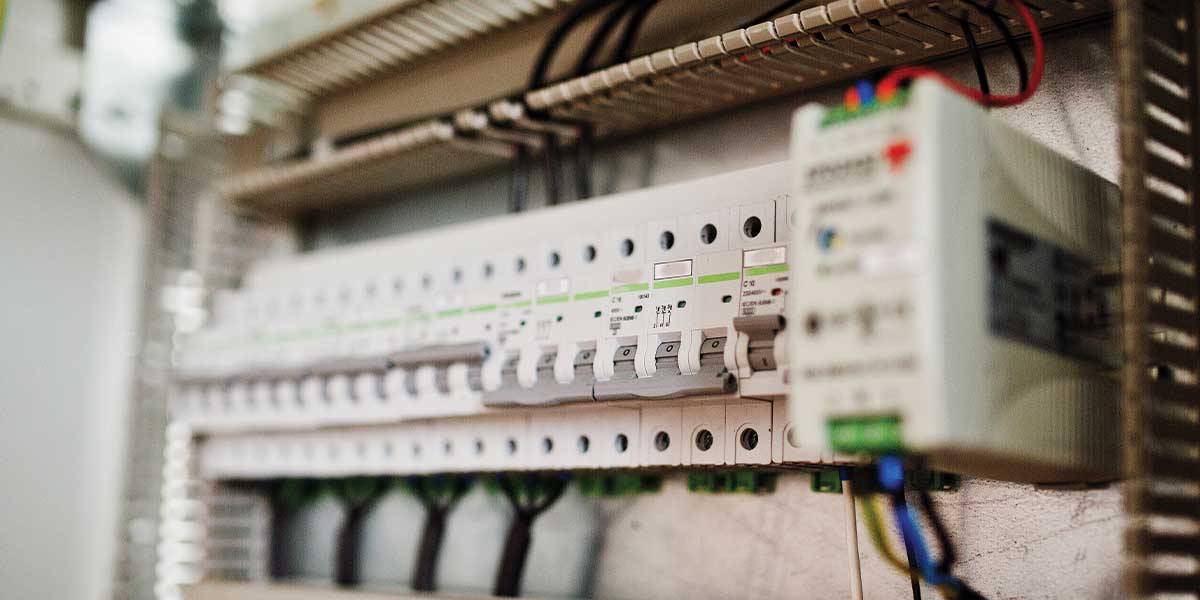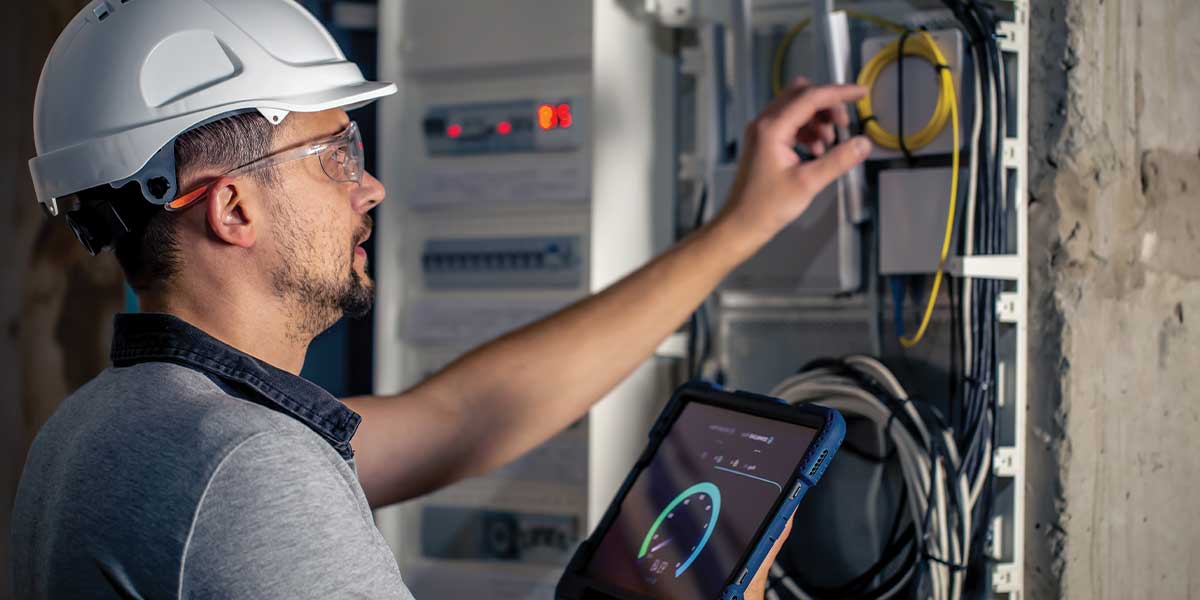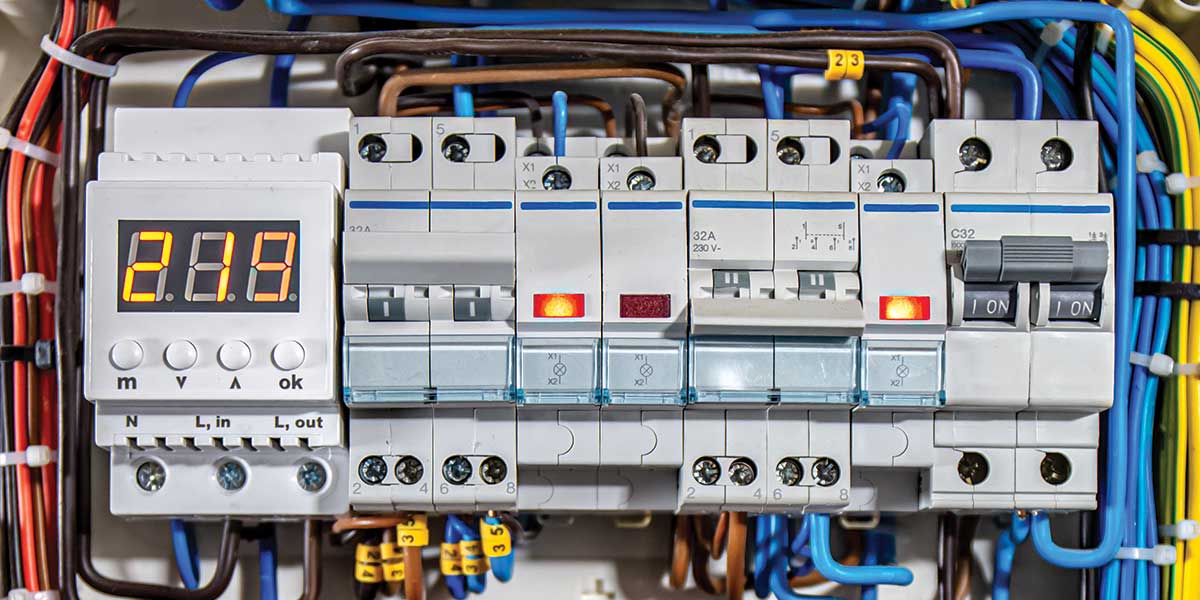You are not alone if you’ve ever stood in front of your electrical panel, flipping a stubborn breaker that just won’t stay “on.” A circuit breaker that refuses to reset is more than just a minor inconvenience—it can be a sign of serious electrical issues that require immediate attention.
If you’ve been wondering what to do if a circuit breaker will not reset, this guide covers everything from common causes to professional solutions. At Expert Electric, our licensed electricians in Vancouver and across the Lower Mainland specialize in diagnosing and fixing breaker problems safely, so you don’t have to take risks with your home’s electrical system.
Why Circuit Breakers Exist
Circuit breakers are designed as safety devices that prevent your home’s electrical system from becoming overloaded, overheating, or catching fire. For more insights on safe electrical practices, visit the Electrical Safety Foundation International (ESFI), a leading authority on electrical safety education.
But what if the breaker won’t reset? That’s when it’s time to dig deeper.

Why Won’t My Circuit Breaker Reset?
There are several reasons why a circuit breaker refuses to reset. Understanding these causes can help you decide whether the issue is something you can troubleshoot or whether it’s time to call an electrician immediately.
1. Circuit Overload
The most common reason for a breaker that won’t reset is a circuit overload. This happens when you plug too many devices into the same circuit, drawing more power than it’s designed to handle.
Signs of an overload include:
-
Breaker trips when multiple devices are running
-
Lights flicker or dim when appliances turn on
-
Warm or buzzing outlets
What to do:
- Turn the breaker to the “off” position.
- Unplug some devices or appliances.
- Flip the breaker back on.
- Use fewer appliances at once on that circuit moving forward.
If the breaker resets after reducing load, you’ve found the culprit. If not, the issue could be deeper.
2. Short Circuit
A short circuit occurs when a hot wire touches a neutral wire or another hot wire. This creates an immediate surge of current, causing the breaker to trip to prevent a fire.
Signs of a short circuit include:
-
Breaker trips immediately when flipped back on
-
A burning smell or scorch marks around outlets
-
Sparks or popping sounds from wiring or outlets
What to do:
-
Leave the breaker in the “off” position.
-
Do not attempt to turn it back on.
3. Ground Fault
A ground fault happens when a hot wire touches a ground wire or a grounded part of an electrical box. This can cause electric shock and poses serious danger.
Signs of a ground fault include:
-
Breaker trips as soon as appliances are plugged in
-
Electric shock when touching an appliance or outlet
-
Appliances stop working unexpectedly
What to do:
Ground faults are hazardous and require immediate professional repair. If you suspect this is the case, shut off the breaker and contact Expert Electric right away.
4. Faulty Breaker
Sometimes the breaker itself is to blame. Breakers can wear out over time or become defective, making them trip even without overloads or shorts.
What to do:
-
If you’ve ruled out overloads and wiring issues, you may need a breaker replacement.
-
A licensed electrician can safely test and replace the faulty breaker.
5. Human Error
Believe it or not, sometimes the issue is simply human error. Breakers can be stiff and require more force than expected. In other cases, homeowners may try to reset the wrong breaker altogether.
What to do:
-
Double-check you are flipping the correct breaker.
-
Firmly move the breaker all the way to “off” before switching it back to “on.”
Step-by-Step: What to Do if a Circuit Breaker will not Reset
Here’s a simple troubleshooting checklist:
- Turn off all appliances connected to that circuit.
- Flip the breaker fully off, then firmly switch it back on.
- Check for overloads by unplugging devices.
- Smell and listen for burning odors, sparks, or buzzing.
- Try a reset once. If it trips immediately, stop.
- Call Expert Electric for professional troubleshooting.
⚠️ Important: Never keep forcing a breaker to reset. If it won’t stay on, there’s a reason and ignoring it could cause serious damage or fire.

The Dangers of Forcing a Circuit Breaker
It’s tempting to keep flipping a breaker until it stays on, but this is one of the most dangerous mistakes homeowners make. Forcing a breaker to stay on overrides its safety mechanism, potentially leading to:
-
Electrical fires caused by overheated wires
-
Permanent damage to your appliances and wiring
-
Electrocution risks to you or your family
When in doubt, always trust the breaker, it’s telling you something is wrong.
Professional Help: When to Call Expert Electric
While simple overloads can be handled by unplugging devices, other issues require a professional electrician. You should call Expert Electric if:
- Your breaker trips immediately after resetting
- You smell burning or see scorch marks
- The breaker feels hot to the touch
- You suspect a short circuit or ground fault
- You need a breaker replacement
Our licensed electricians serve homeowners across Vancouver and the Lower Mainland, providing fast, reliable, and safe electrical repairs.
FAQs About Circuit Breakers
1. How can I tell if my circuit breaker is bad?
A breaker that won’t reset even after reducing load, feels hot, or trips instantly without appliances running may be faulty and require replacement.
2. Can I replace a breaker myself?
It’s strongly recommended that only licensed electricians replace breakers. Handling live electrical panels without training can result in serious injury.
3. Why does my breaker keep tripping at night?
Nighttime tripping often points to overloaded circuits when multiple appliances (like heaters or AC units) run simultaneously. It could also signal wiring issues that require inspection.
4. How long should a circuit breaker last?
Most breakers last 20–30 years. However, frequent tripping or poor maintenance can shorten their lifespan.
5. Is it dangerous if my breaker won’t reset?
Yes. A breaker that won’t reset may indicate overheating wires, shorts, or faults that could cause electrical fires. Always treat it as a serious issue.
Final Thought
Knowing what to do if a circuit breaker will not reset can make the difference between a quick fix and a serious safety hazard. While unplugging devices or redistributing power may solve an overload, short circuits, ground faults, or faulty breakers require professional attention.
At Expert Electric, we’re committed to keeping your home safe, efficient, and fully powered. Don’t take chances with your electrical system, if your breaker refuses to reset, call in the experts.
Contact Expert Electric
-
Call Us: 604-681-8338
-
Email Us: info@expertelectric.ca
Our team proudly serves Vancouver and the Lower Mainland. Whether it’s a stubborn breaker, lighting upgrades, or full electrical system repairs, we’re here to help.


